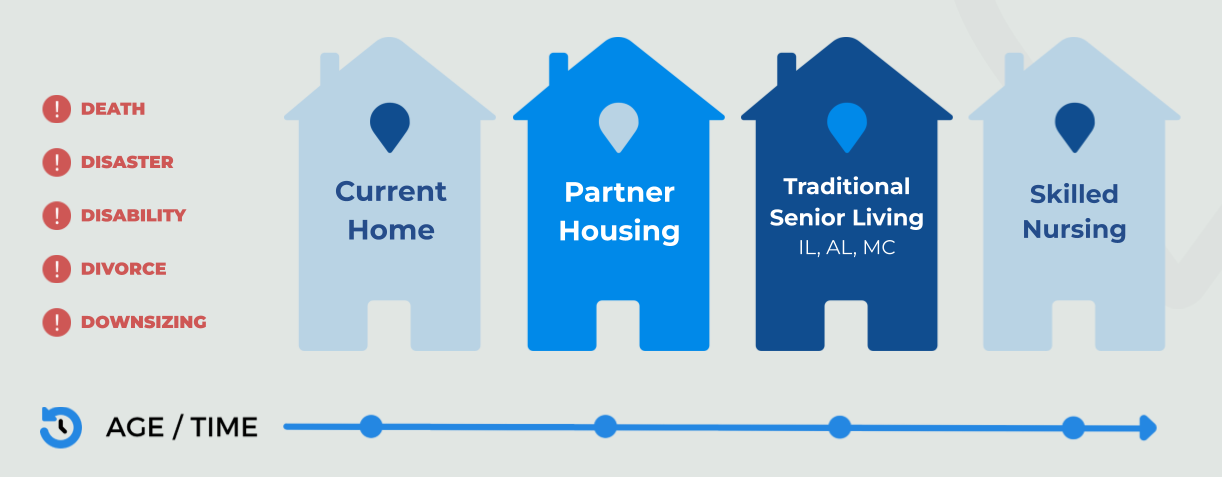
Life’s journey is punctuated by significant events that not only affect our personal lives but also our living arrangements. These “trigger events,” especially critical as we age, can necessitate a change in housing and care. Understanding the intersection of these life changes with housing needs is essential for health plans dedicated to offering timely and empathetic support.
The loss of a spouse or partner is a devastating emotional event, compounded by the need to reassess living arrangements. For many elderly individuals, the home they shared with their loved one may suddenly become too large, too costly to maintain, or too laden with memories, prompting the need for a new, more suitable living environment. This transition often involves downsizing or moving to assisted living facilities where they can receive the necessary support while coping with their grief.
Natural disasters, such as fires and floods, can abruptly leave a home unsafe or uninhabitable, thrusting older adults into a housing crisis. In these moments, the need for a stable, secure, and accessible new home becomes paramount. Health plans play a vital role in facilitating rapid housing solutions that cater to the specific needs of these individuals, ensuring their safety and well-being in the aftermath of such traumatic events.
The onset of a disability or a severe health condition can drastically change an individual’s ability to live independently. Homes may need significant modifications, like installing ramps or stairlifts, or in some cases, moving to a specially designed accessible home or facility may be necessary. Health plans can assist in this transition by identifying suitable housing options and supporting modifications to ensure a safe and independent living environment.
Divorce later in life, often called “gray divorce,” requires not just emotional adaptation but also a significant change in living situations. Finding a new home that suits one’s financial situation and lifestyle needs can be challenging. Health plans can offer support in navigating these changes, ensuring that members find housing solutions that provide both comfort and a sense of community in this new life stage.
Downsizing is a common decision among the elderly, driven by the desire for a simpler, more manageable living space or the necessity due to health or financial reasons. This transition often means moving from a family home to smaller apartments or senior living communities. Health plans can support this process by helping identify appropriate housing options that cater to the individual’s health needs, social preferences, and financial capabilities.
These trigger events are more than just personal challenges; they represent a substantial issue for health plan members. Often, these transitions go unnoticed, leaving members to suffer in silence. The impact of inadequate housing on aspects like nutrition and social connectivity is profound. For instance, a broken microwave might seem trivial, but it can lead to poor nutrition, as seen in one of our members’ cases.